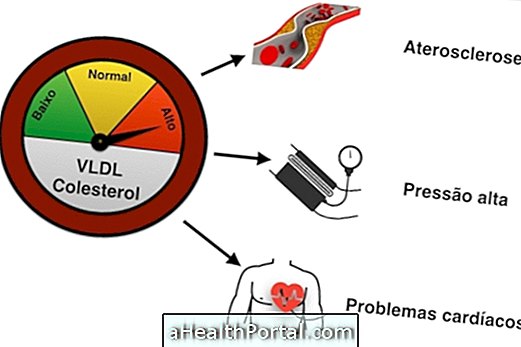Galactorrhea is the inappropriate secretion of milk containing milk from the breast, which occurs in men or women who are not pregnant or breastfeeding. Generally, it is a symptom caused by the increase of prolactin, a hormone produced in the brain whose function is to induce the formation of milk by the breasts, a condition called hyperprolactinemia.
The main causes for the increase of prolactin are pregnancy and breastfeeding, and there are several causes for its inappropriate increase, including tumor in the cerebral pituitary gland, use of medications such as some neuroleptics and antidepressants, breast stimulation or some endocrine diseases such as hypothyroidism and polycystic ovary syndrome.
Thus, to treat hyperprolactinemia and galactorrhea, it is necessary to resolve their cause, either by withdrawing a medicine or treating a disease that is inducing milk production by the breasts.

Main causes
The main causes for breast milk production are pregnancy and breastfeeding; however, galactorrhea occurs mainly due to situations such as:
- Pituitary adenoma : is a benign tumor of the pituitary gland, the brain responsible for the production of several hormones, inlusive to prolactin. The main type is prolactinoma, which usually causes an increase in blood prolactin levels greater than 200mcg / L;
- Other changes in the pituitary gland : cancer, cyst, inflammation, irradiation or brain bumps, for example;
- Stimulation of the breasts or chest wall : the main example of stimulation is sucking of the breasts by the baby, which activates the mammary glands and intensifies the production of cerebral prolactin and, consequently, milk production;
- Diseases that cause hormonal disorders : some of them are hypothyroidism, cirrhosis of the liver, chronic renal failure, Addison's disease and polycystic ovary syndrome;
- Breast cancer : can cause galactorrhea on a single nipple, usually with blood;
- Use of medications :
- Antipsychotics such as Risperidone, Chlorpromazine, Haloperidol or Metoclopramide;
- Opiates, such as Morphine, Tramadol or Codeine;
- Reducing gastric acidity, such as Ranitidine or Cimetidine;
- Antidepressants such as Amtriptyline, Amoxapine or Fluoxetine;
- Some antihypertensives, such as Verapamil, Reserpine and Methyldopa;
- Use of hormones such as estrogens, anti-androgenic or HRT.
Sleep and stress are other conditions that cause an increase in prolactin production, however, rarely cause enough changes to cause galactorrhea.
Common Symptoms
Galactorrhea is the main symptom of hyperprolactinemia, or excess of prolactin in the body, which may have a clear, milky or bloody color, and appear in one or both breasts.
However, other signs and symptoms may arise, as the increase of this hormone can cause changes in sex hormones, such as estrogen and testosterone, or if there are tumors in the pituitary gland. The main symptoms are:
- Amenorrhea, which is the interruption of ovulation and menstruation in the woman;
- Sexual impotence and erectile dysfunction in man;
- Infertility and decreased sexual desire;
- Osteoporosis;
- Headache;
- Visual changes such as turbidity and vision of bright spots.
Hormonal changes can also be responsible for infertility on the part of the man or the woman.
How to diagnose
Galactorrhea is observed at medical examination, which may be spontaneous or arise after nipple expression. Galactorrhea is confirmed whenever milk secretion occurs in males, or when it occurs in a woman who has not been pregnant or breastfeeding for the past 6 months.
To identify the cause of galactorrhea, the doctor will make an assessment of the history of medications and other symptoms that the person may feel. In addition, some tests may be done to investigate the cause of galactorrhea, such as blood prolactin dosage, TSH and T4 levels, to investigate thyroid function, and, if necessary, magnetic resonance imaging of the brain to investigate the presence of tumors or other changes in the pituitary gland.
How is the treatment done?
The treatment for galactorrhea is guided by the endocrinologist, and varies according to the causes of the disease. When it is a side effect of some medication, you should talk to the doctor to evaluate the possibility of suspension or replacement of the drug by another.
When it is caused by a disease, it is important that it is treated properly, in order to stabilize the hormonal disorders, such as, for example, the replacement of thyroid hormones in hypothyroidism or the use of corticosteroids for pituitary granulomas. Or, when galactorrhea is caused by a tumor, your doctor may indicate treatment with surgical removal or procedures such as radiation therapy.
In addition, there are medications that can reduce prolactin production and control galactorrhea while definitive treatment is done, such as Carbegoline and Bromocriptine, which are drugs of the class of dopaminergic antagonists.





















